Hello friends, welcome! If you want to explore how we see the world & better understand it, subscribe below:
You can check out my other articles or follow me on Twitter too!
Housekeeping Note: I’ll be traveling to Japan for a month so I won’t be shipping these weekly pieces for a bit. 🙂
If y’all have any Japan travel tips or just wanna say Hi!👋, DM me on Twitter, leave a comment below or email me at kiran@animebuff.co. 😄
Now to today’s piece 🤝
Ah it’s getting late, time to go.
I step outside of my office, into the sun and walk to my car. After getting in, starting the car and driving straight into commuter traffic, my eyes adopt the deadeye stare of the commuter; only the hum of the engine and the monotony of stop-n-go traffic accompany me.
Ping.
The low fuel light that was on is now critical. You know it’s bad when the car stops telling you the range left and just shows the gas icon ⛽️.
Dead-eyed no more.
Shit. Gotta find a gas station.
I slowly commute/drift to the nearest gas station when a thought crosses my mind. What if I just didn’t? I mean, what would happen if I didn’t fill gas?... The car would stall, yeah but I mean, would it affect the engine? But how does this engine run? How does the power from the engine make its way to the wheels?…I’ve got no idea.
Fortunately, I manage to make to a gas station and after a while, I make it home where I grab a apple from my fruit basket1 & sit in a chair to enjoy the setting sun pouring in thru the window. I peer at the window and the surrounding walls. Could I build a apartment like this?… I doubt it. I take a bite from the crisp apple. I wonder where this apple came from? How was it harvested from the tree? How did it get into my hands? 2
How’d did we get to a point where I, knowing nothing about farming, mechanics/drilling and housing construction, have a basket of fruits from all over the world to eat from, a car to take me anywhere, and a well insulated home w/ plumbing, electricity and heating?
The Beginning of Labor
At the dawn of humanity, humans forage for fruits, berries, edible plants, & hunt animals; when resources become scarce, we simply nomad somewhere else.
As a result, it’s not a great living.
You spend a majority of your time securing food, water and shelter; sitting in a corner and contemplating the meaning of life is out of the question.
To live is to survive & to survive is to eat & stay warm.
As you can expect, most things suck. Like really suck.

So making sure that you are good at what you do matters a lot; the difference between catching that deer or not is life & death.
And while you could divide your time and efforts between hunting deer and finding where edible plants grew, by virtue of divided resources, you’d be worse at both.
So what do you do?
You specialize!
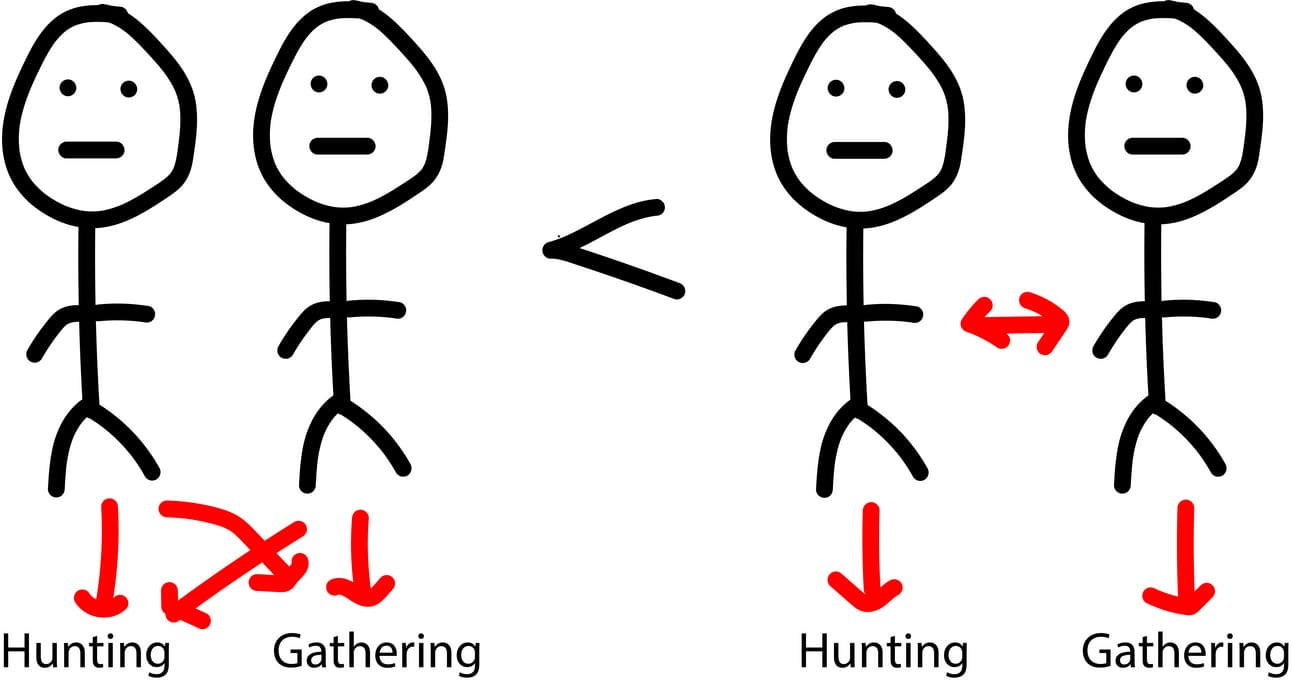
That’s specialization!
You hunt while some others from your tribe gather and at the end of the day, you provide for one another.3
Consider this Career Bar to be extent of what is possible & available for a human to do at the present moment.
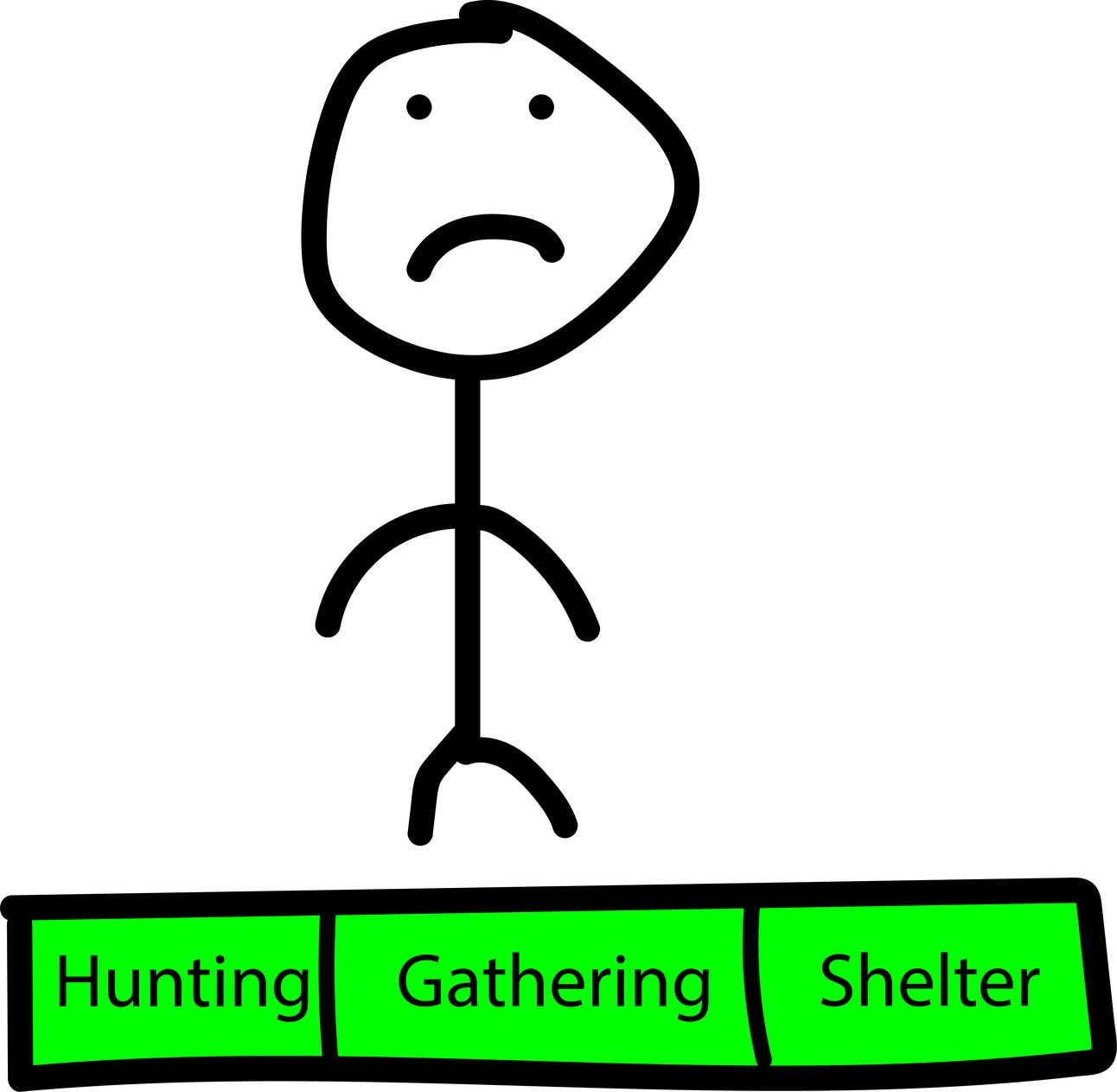
I feel like hunter-gatherer is pretty self-explanatory but here’s a pretty bar :)
What a person can do is limited by what they need to do to survive: food & shelter.
Roughly 178,000 years (that’s 89% of human history) passes this way.4
But specialization can only occur so much; after all, there are only so many plants to gather and animals to hunt in a particular area, limiting population size & constantly nomading doesn’t help either. It’s hard to specialize into something if you have to keep re-learning what animals to hunt, what plants to forage and constantly rebuild your home.
Then, the Agricultural Revolution arrives.
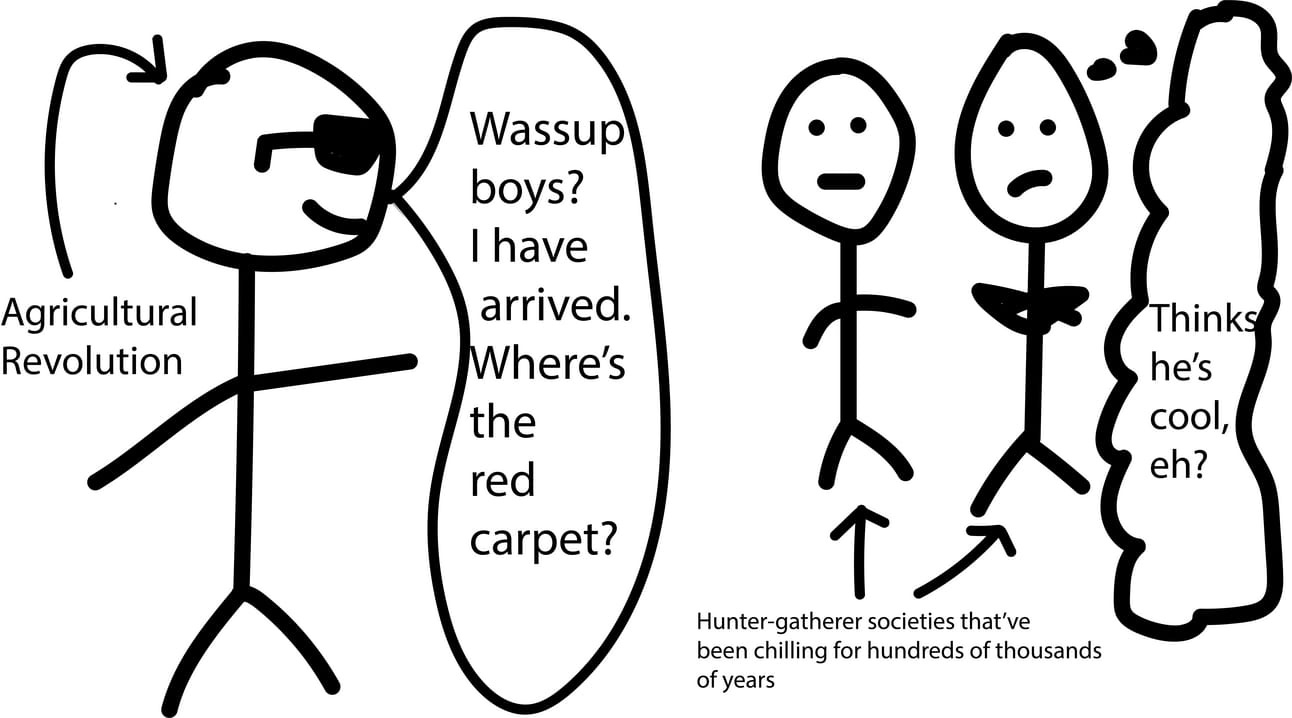
Previously nomadic, hunter-gatherer communities settle and form permanent, agricultural communities.
From here on out, a portion of the group could focus on one thing: securing sustenance; otherwise known as farmers.
Instead of everyone scouring the land for small edible plants or hunting, a farmer could focus on how to maximize the yield from a single plot of land, manage a growing array of animals and provide food to a wider population in exchange for things of equal value. Implementing irrigation, fertilizing the soil with animal dung, and plowing the field were all innovations that took place when farmers were able to focus on honing their craft.
Well, then what did the others do?
They had to find and create things of value to trade for the food and they could do it in one place instead of nomading.
So now, someone decides to build and fix homes (i.e. a carpenter). So the farmer gets a well built home that insulated from the cold and the carpenter gets food on the table for his family.
Therefore, the ability to do other kinds of work and then trade for those kinds of work became increasingly valuable.
Combine this with the extra resources generated by the efficiency of farming over foraging and an immovable population, and out comes a)population growth & b) an explosion in specialization.
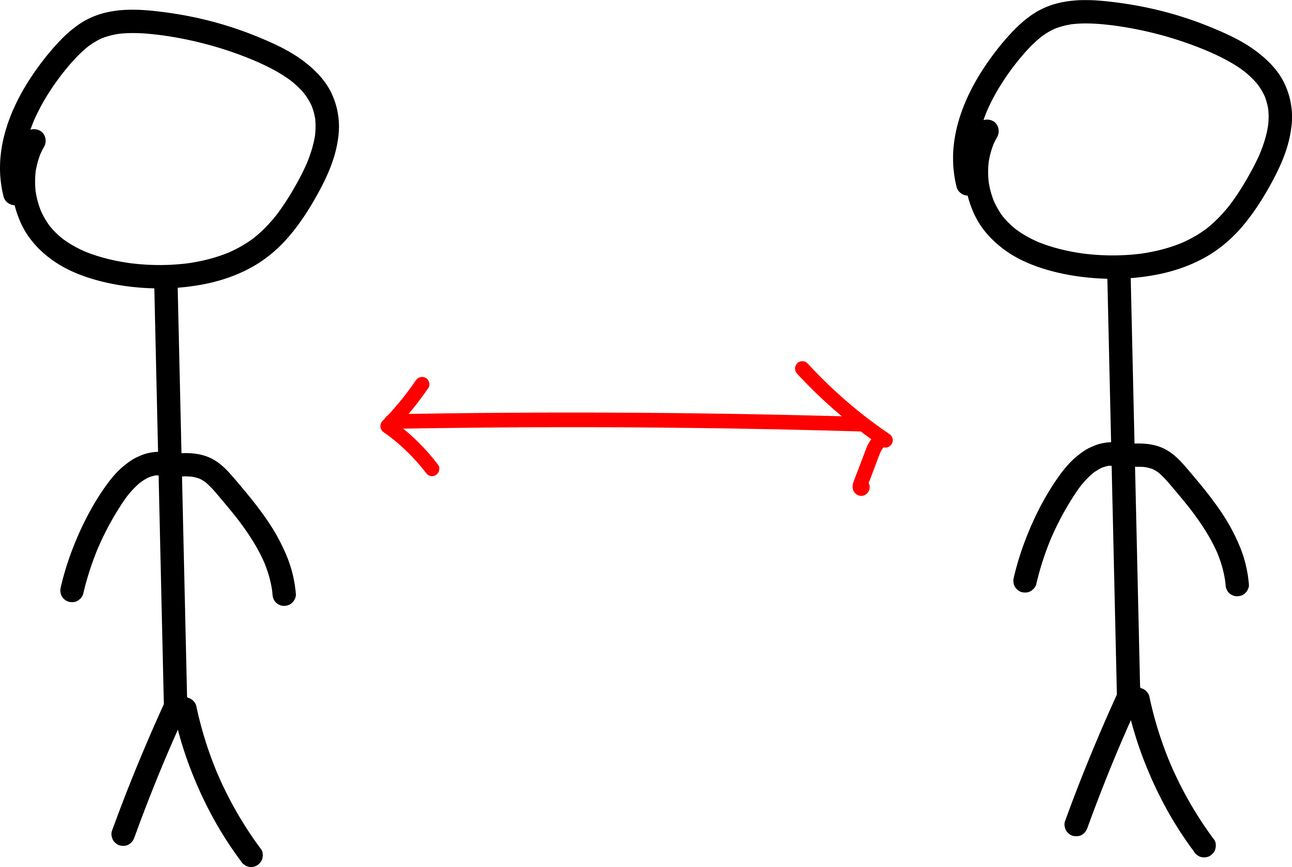

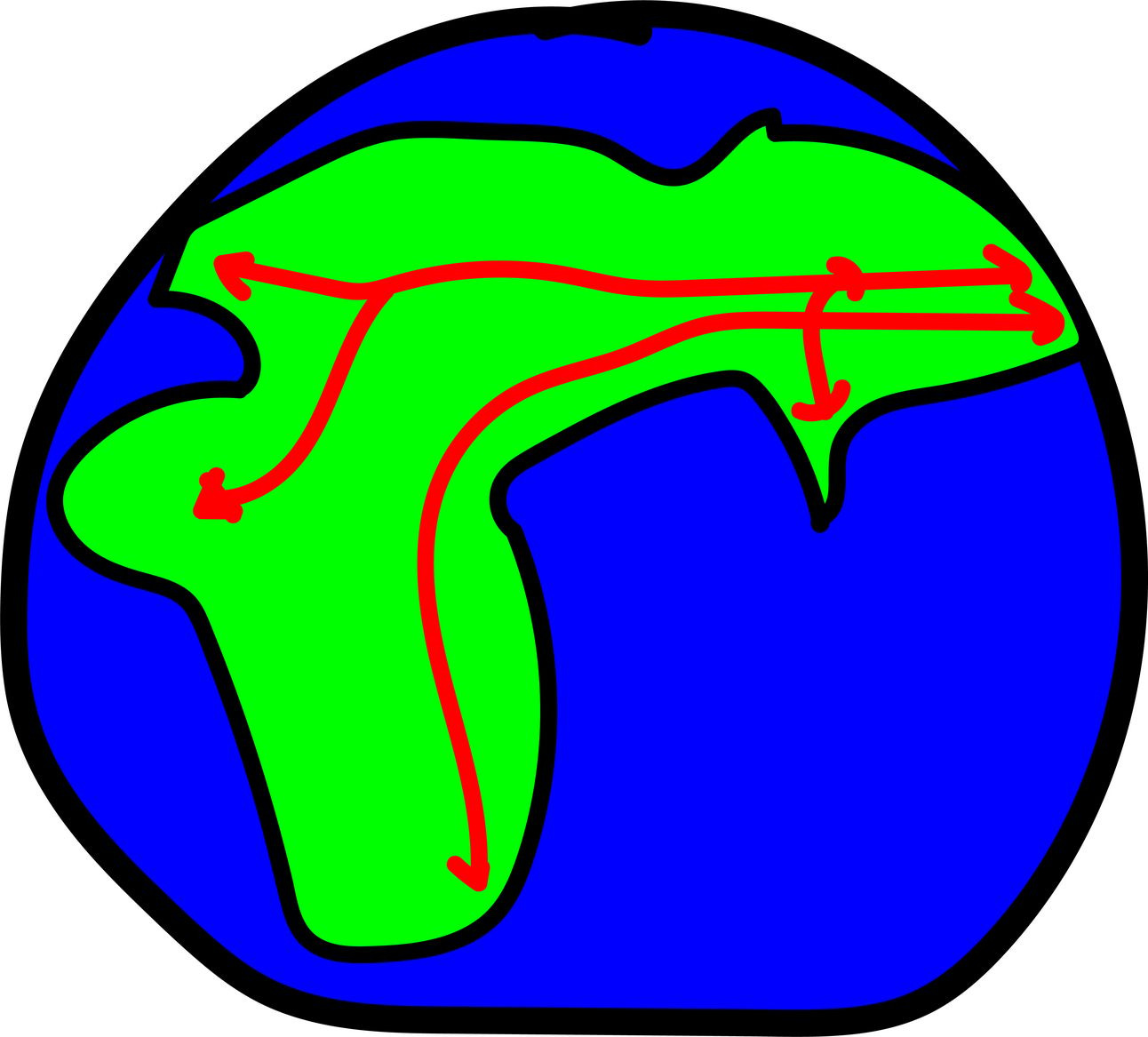
Another 11,767 years passes5.
During this time, the first pot is molded, and merchants first use writing on clay tablets to note transactions & debts. The pyramids rise & the mummified bodies of rulers are buried in its depths. Large trade ships travel vast distances & caravans, forming the Silk Road, span entire continents.The Roman empire rises and then falls. The Taj Mahal is built by Mughal Emperor Shah Jahan for his favorite wife Mumtaz Mahal.
Now the Career Bar looks like this.
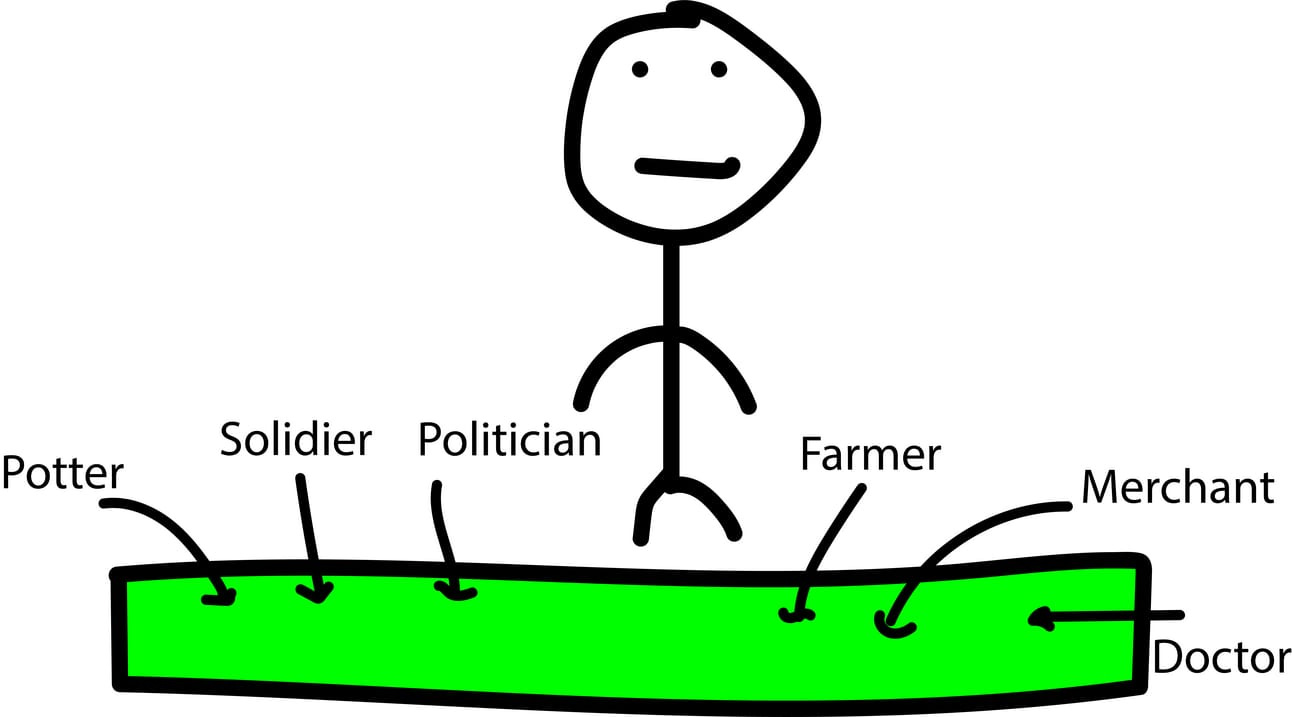
And then, in the year 1760, the Industrial Revolution comes to town.
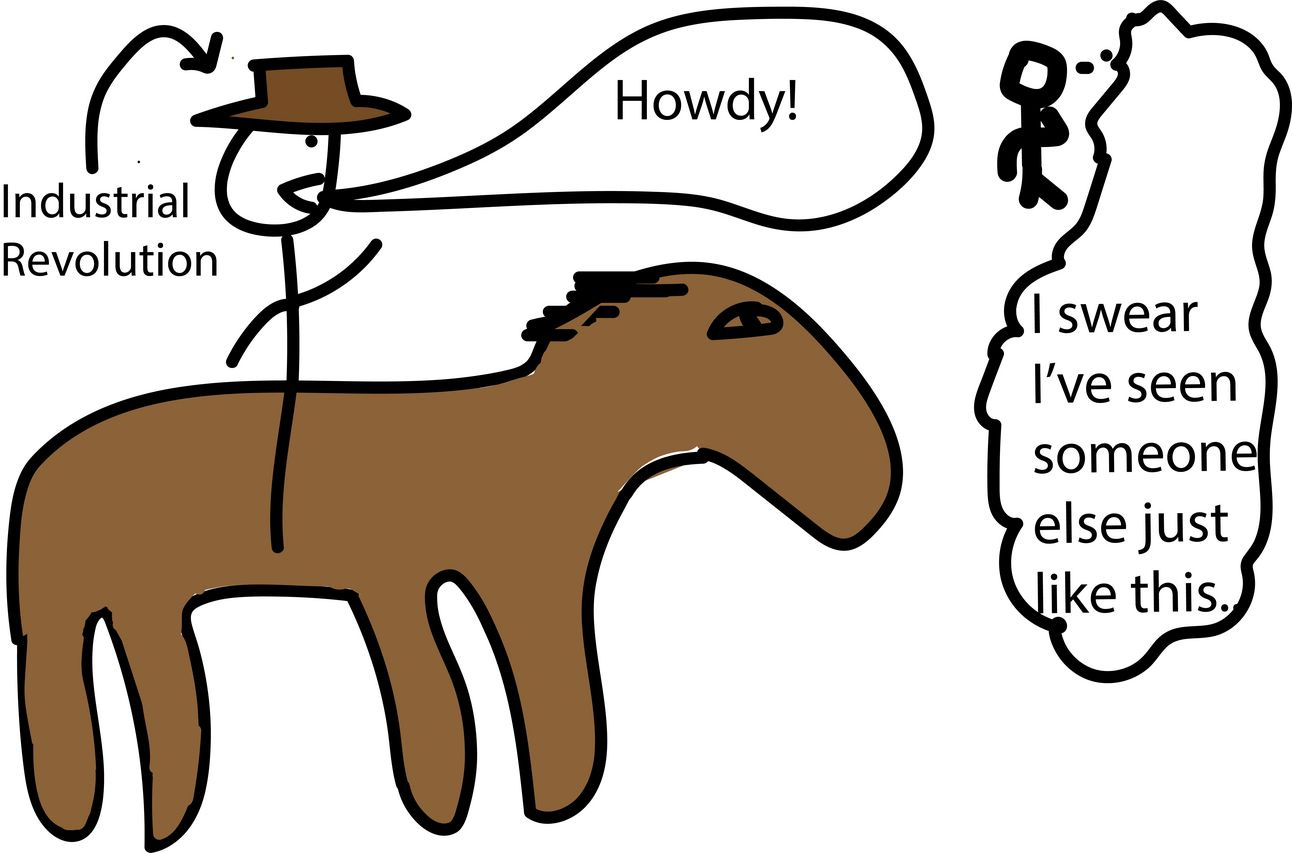
With the Industrial Revolution, the work of 10, 100, 1000 people could be done by a machine. The fundamental relationship between work and population shifted with a single cotton gin & power loom doing the work of dozens in the textile industry alone.
Pressure to hyper-specialize skyrockets and the same phenomenon that occurred between the farmer and the carpenter accelerates.
Before, a worker may study the art and craft of designing a shoe and become a cobbler. Now, a worker only needs to know the best way to operate a shoe heel-manufacturing machine that hammers a heel into the shoe.
While this specialization leads to improvements on labor & product and output, it also leads to an abstraction of the labor process.
With work being able to be broken down into smaller and smaller bits & pieces, the capability of one person to optimize on one task drastically increases and subsequently, the quality to which that task could be done vastly increases.
Now what a human can do in the modern world, the bar now looks like this.

And that’s the beauty of the specialization of labor.
Not only does the number of tasks available increase but also the range of what’s possible itself increases.
It enables people to become good at things that improve the standard of living for everyone and detach themselves from spending their energy on their immediate needs.
As a software engineer, I press the-formed-and-hardened-material-of-dead-dinosaurs on a piece of silicon/gold/substrate/metal to tell another piece of silicon/gold/substrate/metal what to do.
A level of specialization, that in the time of hunter-gatherers, 200,000 years ago, would have been equivalent of tapping rocks together.

I don’t gather my food or water, search for housing or worry about how to get from one place to another; I don’t need to! No one person needs to know how this entire thing operates to benefit from the specialization of labor.
So let’s be grateful for a specialized world. Without it, we’d still be tapping away at rocks in the jungle.
Or well, at least I’d be.
Kiran
Keeping a basket of washed fresh fruit is definitely a hack for eating more fruit.
As it turns out, newly bred apple varieties are released just like other products.
This phenomenon not only applies to individuals but to large groups as well. Group A and Group B who split their time between two tasks is < than Group A and Group B doing their own tasks & collaborating. This also forms the fundamental basics of trade but more on that in a separate piece :).
Based on the approximation that the Agricultural Revolution (as known as the Neolithic Revolution) occurred 12,000 years ago.
If you liked this piece, make sure to subscribe by adding your email below!
Kiran’s Gems 💎
“Success is simply having the freedom to focus on the ongoing grind you actually enjoy.” A classic Julian Shapiro piece on What to do with your life. A definite recommend.
The housing theory of everything. Captures much of my thought & adds much more around how high housing costs have priced out people, opportunities, and serendipity out of our urban societies.
Atul Gawande on Coaching in the Operating Room. Incredible to see a surgeon embracing coaching in a field resistant to post-grad feedback and critique.



